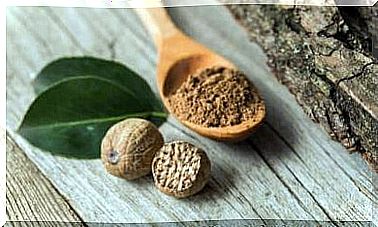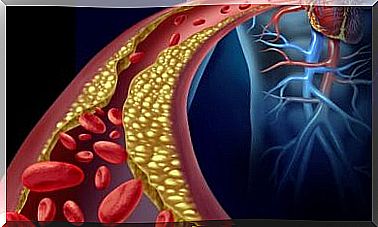A Healthy Diet For Gastritis: What Can You Eat?

Gastritis is an inflammation of the gastric mucosa that causes discomfort, heartburn, and even nausea and vomiting. People with chronic gastritis are often afraid to eat certain things to avoid this discomfort. In this article, we give you advice on how to structure a good diet for gastritis. Keep reading to learn more!
What causes gastritis?
One of the most common causes of gastritis is an infection caused by a bacterium called Helicobacter pylori (Spanish link). In developed countries, this bacteria can infect up to 50% of the population, although only 15% of them develop the disease.
This shows that the development of gastritis is highly dependent on genetic or environmental factors (such as diet and smoking). However, this is not the only cause of gastritis. Other causes include:
- continued use of certain medications such as non-steroidal anti-inflammatory drugs (NSAIDs) such as aspirin or ibuprofen
- using too much alcohol, tobacco, or drugs
- autoimmune diseases such as pernicious anemia
- high stress or anxiety, because it increases stomach acids and causes a so-called gastritis nervosa
- overuse of rich, very heavy, or spicy foods
How should someone with gastritis structure their diet?
A diet for gastritis consists of a nutritious and healthy diet in which we reduce and avoid the consumption of those foods that aggravate and irritate the stomach and increase the consumption of foods that have a calming or positive effect on the stomach.
With the right diet, it is possible to improve digestion, reduce pain and other symptoms and thus reduce inflammation and stomach upset. It is very important to remember that medical consultation is always necessary when treating gastritis.
General Dietary Guidelines for Gastritis
When preparing a diet for people who suffer from gastritis, the following tips should be taken into account:
- Meals should be light. If necessary, you can eat more often, but avoid eating until you feel completely full.
- Promote certain recommended foods that are healthy for the stomach, such as
- potatoes
- rice
- carrots
- pumpkins
- boiled cabbage
- apples
- ripe bananas
- olive oil
- Light cooking, where it pays especially to steam or boil, and to make purees or soups.
- Avoid stir-frying, grilling, roasting and very dry or uncooked or fried foods.
- Don’t drink anything too hot.
- Drink water throughout the day.
Examples of a daily diet for gastritis
Remember that while this diet will help reduce some of the pain and discomfort caused by gastritis, it is not a cure.
Breakfast
- Semi-skimmed milk with sugar / yogurt
- White bread with jam / Biscuits / Two slices of white bread with turkey or ham
- 1 tablespoon low-fat white cheese
Morning snack
- Grilled fruit or fruit compote / Peach, apple or grape juice / Recommended fruit
Lunch
- Side dish: Zucchini puree / Boiled potatoes with chard / Rice with vegetables / White macaroni with cooked ham or bacon, zucchini and aubergine.
- Main: Roasted skinless chicken thighs / Grilled beef / Boiled hake / Fried whiting
- Dessert: Ripe banana / Peach in syrup / Roasted pumpkin / Curd with sugar / Homemade custard topped with skimmed milk
Afternoon snack
- Tea or infusion with some biscuits / Natural yogurt / Light fruit
Dinner
- Appetizer: Boiled green beans, carrots and potatoes / Vegetable puree / Chicken soup with noodles / Borage and potato
- Main course: Grilled chicken breast with steamed potatoes / Grilled ham / Grilled sole with boiled carrots / Fried halibut / Egg or zucchini omelette
- Dessert: Roasted apple / Ripe pear / Fresh cheese with quince jelly / Vanilla pudding
Note: If you want to improve digestion, try drinking more infused tea with strong digestive properties.
Finally, remember not to restrict your diet more than necessary. Use these recommendations as a guideline and always remember your personal preferences and dietary restrictions.
Also try to make your diet, within the limits, as varied and balanced as possible. In addition, you can try gradually introducing more food into your diet as your condition improves.









